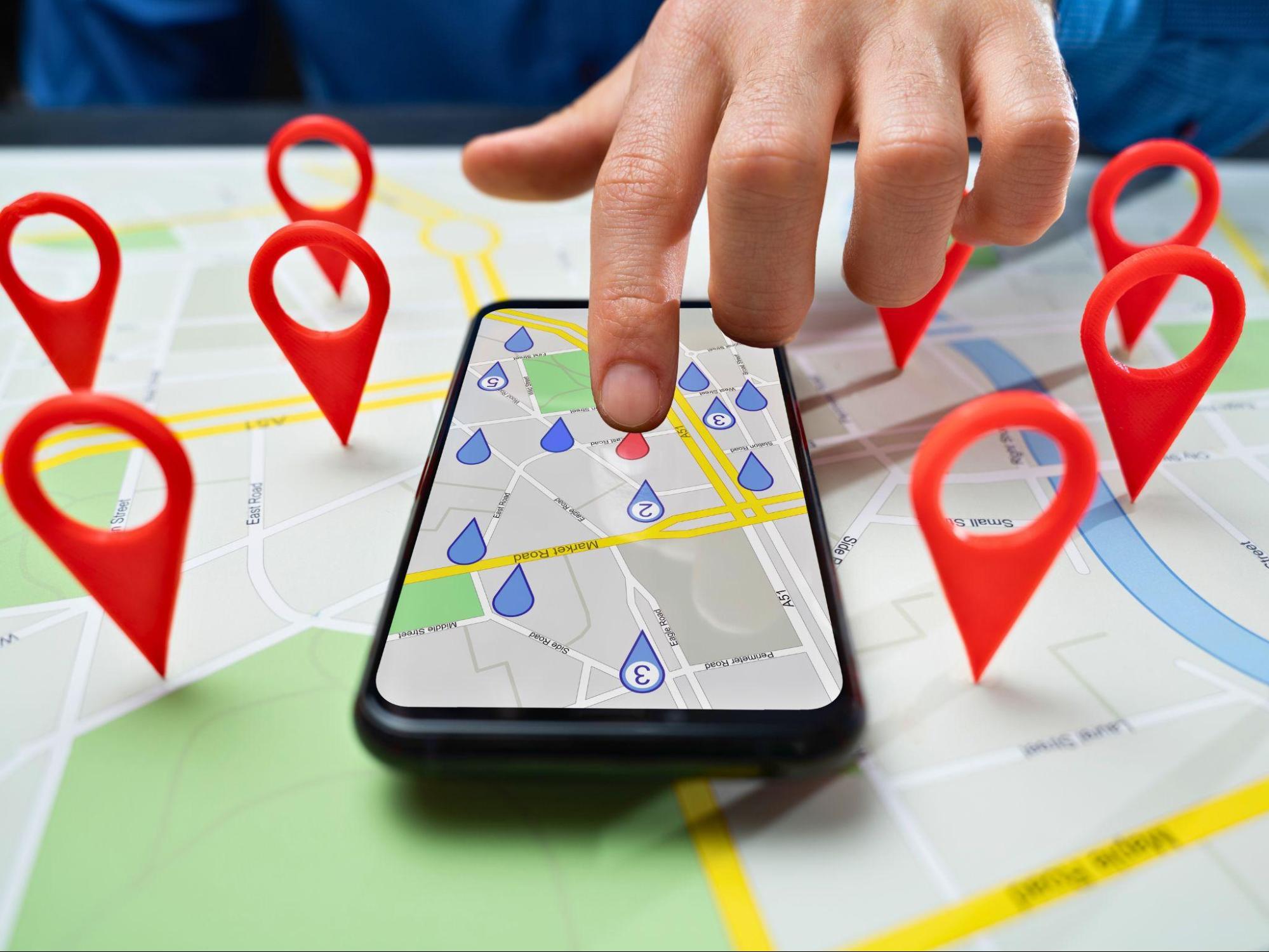How SEO varies from Local SEO
Your website needs to be optimized for search engines in order to be found by online customers. Search engine optimization plays an important role in your marketing efforts.
Quick Links
You could be excluding tons of local prospects, but are still missing out on them if you don’t have a search engine optimization strategy. But what is the best way to optimize your website for both local and organic search engines? Is there a difference?
Local vs. organic SEO
In simplest terms, “search engine optimization” aims at increasing both the volume and quality of organic web traffic.
Known as quality traffic, organic results refer to the content that displays in search engine results pages (SERPs) when visitors search for exactly what you offer them.
SEO is therefore largely about increasing the number of organic visitors to your site by making everyone happy and the search engines too. Organic traffic is referred to as visitors coming from organic search, and therefore, SEO refers to the process of increasing organic traffic to your site.
A subsection of this is local search engine optimization, which is concerned with geographical search outcomes. In local search engine optimization, your website is optimized for local search results to increase not only traffic and visibility to your website, but also customers visiting your physical location.
There is less competition for local search terms compared to search terms with high search value and shopping intent. So, your business is more likely to stand out in your local market and gain business.
What is a search engine and how does it work?
It’s crucial to understand at least the basics of search engine operation prior to exploring organic search and local search.
Google’s search algorithm won’t be known to anyone outside of the company’s inner circle, but we can present you with a general explanation of search engine algorithms.
Search engines can be summarized as following three simple steps:
- Crawling
- Indexing
- The retrieval
The vast array of content available on Google, for example, can be thought of as huge online libraries. Search engines crawl websites (by following links), process information on individual pages, categorize related information, and index their content so users can easily find it at the beginning of their searches.
As seen in search engine results pages, or the SERPs, search engine results are populated by the results that are most relevant to a user’s query.
Understanding how search engines work can help you understand how important it is to optimize your site’s content to make it as valuable to the search engine as it is for your ideal visitor. Is there any difference between organic and local searches? How would this influence our search engine optimization strategy?
The purpose of local search
A local search engine’s results are based on a different factor: identifying local content based on the local intent behind the search question behind the user’s search. Organic search is based on a user’s query, external links and internal links, and other factors, but local search and its results are based on something else: providing geographically relevant information based on the user’s search query.
Featured snippets to answers to common questions and e-commerce sites are examples of how organic search benefits the general public, not just the searching public. In addition to serving informational searchers, local searches are displaying a more pronounced purchase intent.
Local searchers are searching for local businesses or places to visit in person, or services that come to them. Consider local medical practices, plumbing, lawyers, restaurants, and in-home healthcare providers. Where does the intent to search locally come from?
A typical local search query includes the following modifiers:
- [keyword] + city
- [keyword] + near me
- [keyword] + nearest to me
Search results are filtered by these modifiers based on a user’s location, their willingness to travel, and their urgency. Users have, however, begun dropping these modifiers from their queries more and more recently.
In addition to neural matching, Google has implemented local searches using neural matching. Their search engine will be able to discern the meaning of keywords implying local intent and respond appropriately, regardless of whether the keywords are accompanied by a name or location.
What are the differences between local SEO strategies and organic SEO?
To achieve the best results for your website, you should always do on-page SEO, technical SEO, and off-page SEO.
The local SEO strategy should, however, take into account some key differences in the areas you should focus on for success. A general SEO strategy and a local SEO strategy should take a similar approach to improving and optimizing your site for search engines.
When it comes to local traffic, you need an approach tailored to your region. For example, include keywords related to your location in your copy or include local customer reviews on your site. Off- and on-page SEO efforts can be incorporated into local SEO, but in a more focused, localized manner that caters to local customers. Off- and on-page SEO efforts influence your customers as well as one another.
Brick-and-mortar stores should have a local SEO strategy that entails:
- Google My Business creation and optimization
- Promote your local business through local directories and listings
- Generating all types of content (social media, blog, photos of customers)
- Keeping track of visitors and customers
- Management of reputations
- Making your website mobile-friendly
- Having an about us page for each location
Local SEO: When to use it
Investing additional time and energy in your local SEO strategy is essential for your business’ success if you have a geographically diverse, vibrant local market.
Your business should always show up in Google’s local pack when a user searches for your products and services. Particularly if you have more than one store in a local area.
To receive better rankings in localized search results, you can use tools such as those offered by Google Analytics to track your visitors’ behavior. In addition to providing actionable insights about where people are coming from, online reviews can also help you understand where they are coming from.
The relationship between local SEO and organic SEO
It is important to consider that SEO encompasses a variety of areas that all deal with improving your site’s visibility and traffic from organic search results. In addition to local search, improvements to global search visibility can also be made to improve local visibility.
By increasing your visibility on the local level, you can start gaining more expertise and authority. The more people learn about your amazing business, the more people will link to it and talk about it on other websites on the internet.
Consider how your service is advertised on sites such as reviews of products and services, best-of lists, the press mentions of your business, local news, and recommendations.
Link (from external sources) quality and quantity are two of the most important factors for search ranking. People want to talk about businesses that are great.
Linking to your website through these kinds of recognition will boost the search engine value of your website. As your local SEO grows, your global search value will start to rise too.
You can use this technique both upstream and downstream, so if you already have an effective search engine optimization strategy in place, based on links and good positioning, then doing the same is going to be straightforward. You can see how this might work for a large company with local stores, although it might not work for most businesses.
Local SEO is a great place to start if you have a local business
Top 10 Magento 2 SEO Extensions to Boost Your Store’s Visibility
SEO is the key to a successful store! Have you ever given thought, if your store is simply…
0 Comments12 Minutes
How to Optimise Your PPC Campaigns with AI
As the methods of Internet marketing evolve, Pay-Per-Click (PPC) advertising remains one of the…
0 Comments10 Minutes
Putting Cybersecurity Under the Spotlight: How Security Audits Strengthen Your Defenses
While organizations understand the importance of cybersecurity, there is an opportunity for many…
0 Comments12 Minutes
How Marketing Agencies Can Choose the Best High-Performance SEO Tools
High-performance SEO tools combine comprehensive features, durability, speed, and accuracy. They…
0 Comments9 Minutes
Simplify the Running of Your Business With These Tips
Finding enough hours in the day to tackle all the jobs on your to-do list can be a major issue…
0 Comments4 Minutes
Best SEO Practices for Multi-Location Businesses
Businesses operating across multiple locations benefit from unique opportunities but also face…
0 Comments7 Minutes
Unveiling the 7 Essential Components for an Exceptional Website
Even a beginner can identify what makes a good website, but when it comes to building one, things…
0 Comments8 Minutes
Top Blockchain Trends to Watch in 2024
Blockchain has time and again proved its capacity to redefine many sectors and this prediction of…
0 Comments6 Minutes








